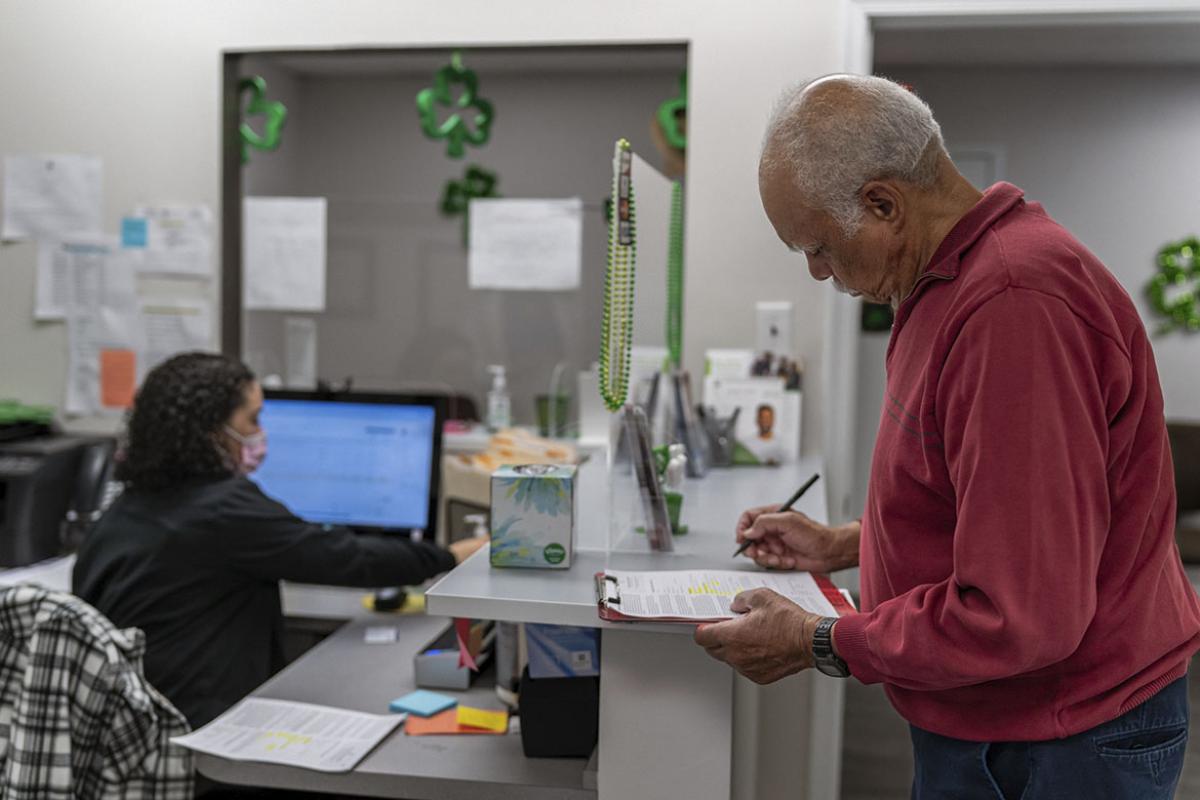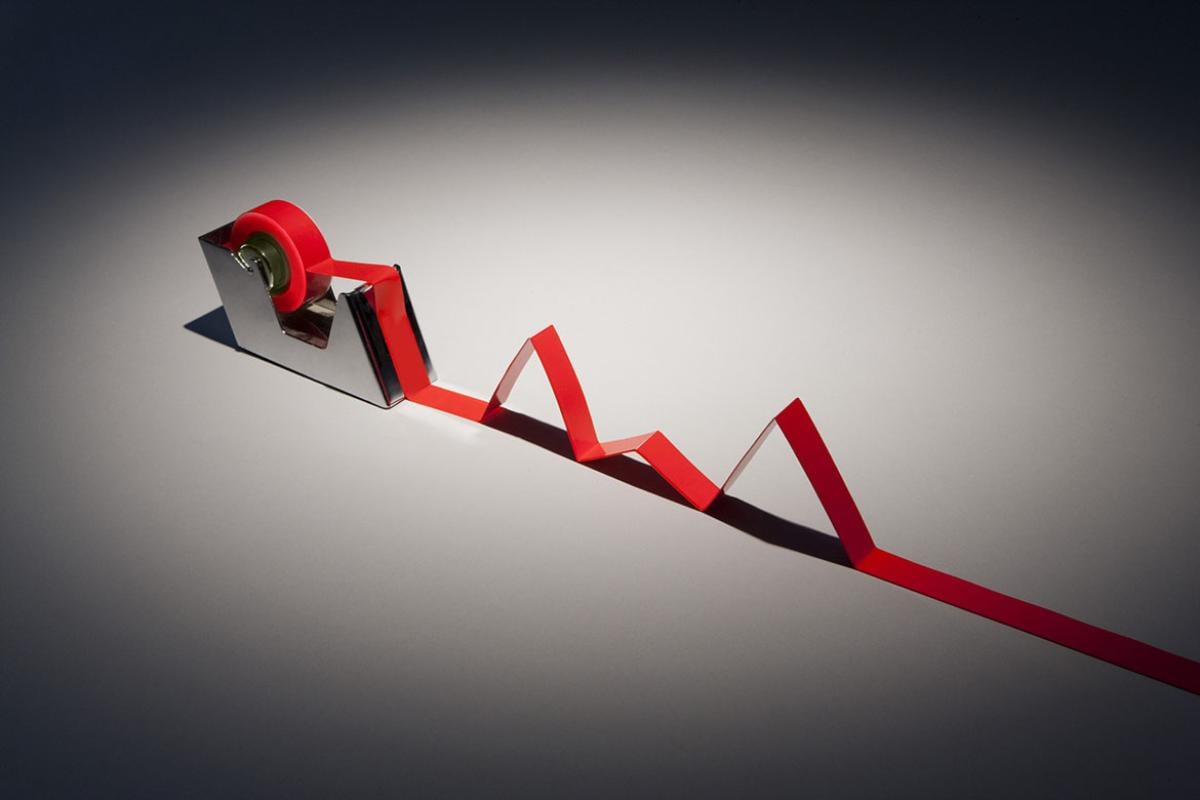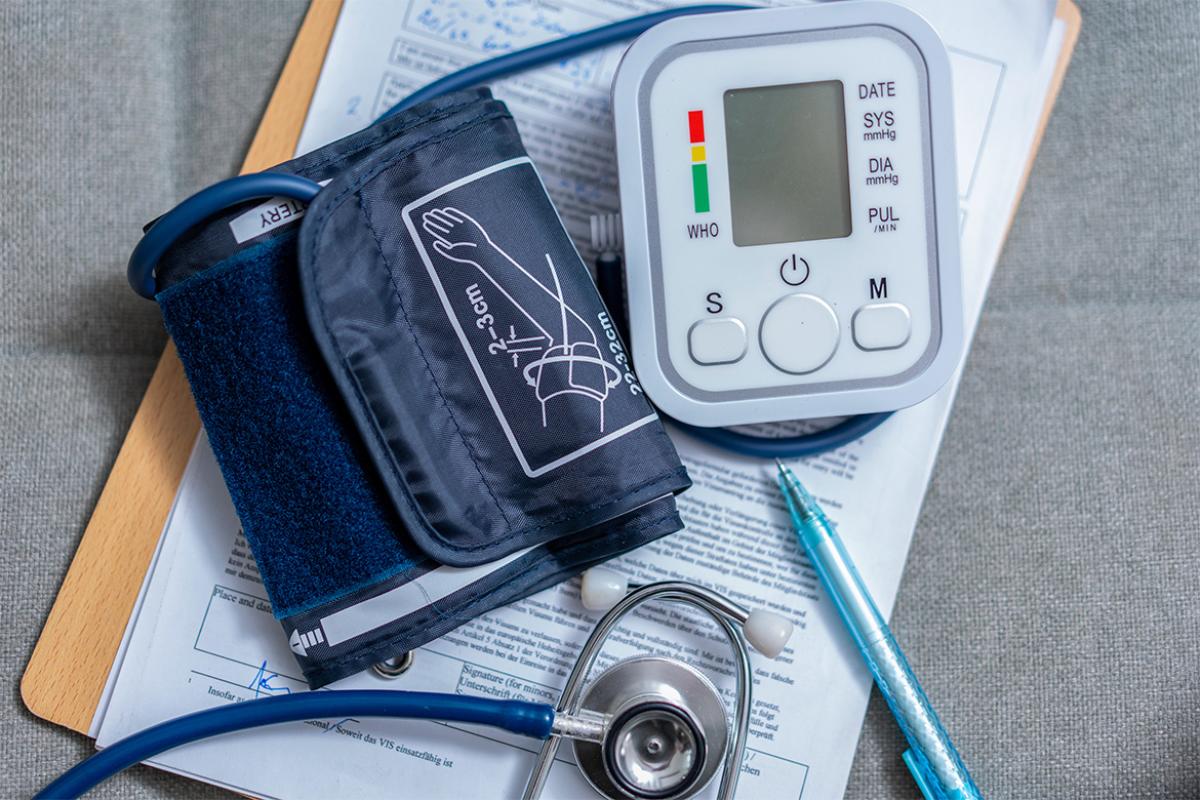“Is this a sunrise or a sunset?” Robert L. Hatch, MD, asked senior physicians during a presentation at the 2016 AMA Interim Meeting. He had shown them an image of a fisherman in a boat with the sun low on the horizon. Burnout pervades every level of a medical career, but sometimes one way to prevent it or recover from it is to reexamine your perspective and priorities.
Dr. Hatch is a family medicine physician at a rural practice in Florida and a professor and director of medical education at the University of Florida College of Medicine.
“I’ve been interested in burnout for a while,” Dr. Hatch said as he showed a chart cluttered with boxes, arrows and numbers, which he found years ago in the hope that it would explain the impact of burnout. “But [the chart] just didn’t end up being very helpful at all.”
What was helpful for Dr. Hatch, however, was observing people “who were effective at preventing burnout and learning about their strategies,” he said. “Then applying those in my life and helping other people apply them in their lives.”
Going part-time
One of the strategies that Dr. Hatch has seen and considers “most effective” is going part-time later in your career. “The last three people who have retired all went part-time first before they retired,” he said. “And, boy, did it work well.”
Dr. Hatch showed attendees a picture of his friend, Larry. “Larry is my hero in that regard. He has been my partner out in our rural practice ever since I started at UF in 1991. He loves to fish. Work was getting in the way of fishing. So he went to 80 percent time, bought a boat, started fishing more and then started enjoying life a whole lot more.”
Just say no
“The people that I know who seem to be enjoying late career the most have generally gotten good at saying, ‘No,’” Dr. Hatch said. “To get where we are now, we were pretty good at saying, ‘Yes.’”
Why do physicians say yes so often? To climb the ladder, Dr. Hatch said. “We wanted to make bigger contributions [or] stroke our egos.”
The first person Dr. Hatch saw employing this method was the former dean of his medical school. “He had these great opportunities to make such big differences and he just kept saying, ‘No, I’m enjoying my part-time work.’ Or, ‘I don’t want to do that,’” Dr. Hatch said.
“He was so much happier,” Dr. Hatch said. “He chose to spend a lot more time with his grandkids to reconnect. He got so energized, and you could actually see him get younger—not physically, but his spirit literally got younger.
“So when these things are calling to you, maybe ask yourself, ‘Is that something I want to do?’”
Also on the matter of saying no, Dr. Hatch addressed substance use by medical professionals. “In the last several years in our college of medicine we’ve had two physicians over the age of 60, both of whom realized that they were drinking too much and that they really needed help,” he said. “Interestingly, they both sought help themselves; it was not anyone doing an intervention.”
After treatment, both physicians “blossomed like you wouldn’t believe,” he said. “It can really make a difference.”
With burnout and stress, people will often turn to substances for an escape, “but [drugs and alcohol] can definitely work against you, and if you’ve ever wondered if maybe you drink too much or you know a colleague who maybe drinks too much, think about pursuing some help,” Dr. Hatch said.
Saying yes … to the right things
“Saying no has a certain role, but saying yes has a very big role,” Dr. Hatch said. “I said before that Larry is my hero. Larry went semi-retirement. He thought, ‘What do I want to do?’ I didn’t realize this until talking to him the other day, but he said, ‘You know, I realize it’s the people you’re around that make the biggest difference. So I gravitated to people who I enjoyed working with and I kept doing those things.’”
Larry said something Dr. Hatch found very interesting. He said, “The people you work with [are] almost more important than what you do.”
“I think there’s a lot of truth in that,” Dr. Hatch said. “We have a great time in our rural practice. We work hard, but we really enjoy it. We enjoy each other, and [Larry] chose to spend more time there.
“The other thing that he said is, ‘We’re lucky. We get to be of service. We get to make a difference, and later in our careers we’re able to feel good about what we have done. That’s a real gift.’”
Stay fit or get fit
Exercise can be a critical factor in stress relief. “We can stay fit or get fit,” Dr. Hatch said. One of the junior faculty members at the University of Florida College of Medicine is a runner, he told the group. That faculty member “basically made our small group of medical students sign up for a 5K,” he said.
“But he told them, ‘Come on, you can do it. If you’ve got to walk, so what? We’re all doing this together.’ He’s very competitive,” Dr. Hatch said, “but he backed off and walked with somebody who was trailing.”
Being fit, encouraging other people to get fit, and involving and inspiring other people in that way can influence the impact of burnout, which can affect not only physicians but their patients as well, Dr. Hatch said.
One of Dr. Hatch’s passions is running. “When I started at this office, I was stressed. I was a junior faculty member. I wanted to exercise more than I was getting to; I had a young child, and I kept thinking ‘I can’t get everything in that I like.’ So I thought, ‘Why not run at lunch?’” he said.
There were some troubles with that, he said. “I’d have to see patients, duck out quick, go for a run, come back in time for afternoon sessions. But I made it work. The office manager was very generous with the schedule and so it worked out. I started a new tradition doing that and so now I figure I’ve probably run with 300 to 400 med students at this point by inviting them to come along at lunch with me. It’s a great way to get to know them. And they seem to really appreciate it.”
Invite young people into your life
To bring young people into his life, the dean of admissions at the UF College of Medicine, formed a faith group where he invites students who share his faith to get together on a weekly, sometimes monthly, basis to talk about issues of faith.
“It’s a great way for him to connect,” Dr. Hatch said. “My office is very near to his. He has a steady stream of students coming in there all the time, coming to talk with him when they have problems or issues and you can see that it keeps him young having them around and having that focus.”
The faculty member who took his students on a 5K had been one of those medical students who ran with Dr. Hatch at lunch. “I made him run with me [and] he made his students run with me. That’s the way mentoring and being a role model works, and I was lucky to be able to find out about that. A lot of us never get to see the impact we have through our mentoring, but it definitely has an impact.”
So what was the image from the beginning? Dr. Hatch asked. “A sunrise or a sunset?”
“This phase of our life can be the sunrise, or it can be the sunset,” Dr. Hatch said. “It’s kind of up to us. Make it a sunrise.”



